Featured
 Alabama brawl turns spotlight on Montgomery’s racial history. By and
Alabama brawl turns spotlight on Montgomery’s racial history. By and
Viral video of a chaotic brawl along Montgomery, Alabama’s riverfront has renewed national conversations about racial tensions in America.
On Tuesday, Montgomery, Alabama, Police Chief Darryl Albert said arrest warrants had been issued for three men involved in the altercation. Investigators looked into whether there was enough evidence to charge for a hate crime or inciting a riot, but the actions did not meet the criteria, he said.
On social media, images from the brawl quickly became a meme, as some viewers praised the Black bystanders who rushed – and swam – to the co-captain’s defense. But jokes and memes aside, historians have noted that the altercation has once again placed Montgomery at the center of conversations around race. Here’s a look at Montgomery’s storied racial history. Read more
Related: The Montgomery Brawl Was, for Some, a Clarifying Moment. Charles M. Blow / NYT
Political / Social
 Trump attacks special counsel Jack Smith and judge assigned to 2020 election case. By Rebecca Shabad / NBC News
Trump attacks special counsel Jack Smith and judge assigned to 2020 election case. By Rebecca Shabad / NBC News
Former President Donald Trump on Monday attacked special counsel Jack Smith and the federal judge assigned to oversee proceedings in the 2020 election case after he was charged with federal crimes in an indictment last week.
Trump’s next hearing is set for Aug. 28, when Chutkan is expected to schedule a trial date. Smith’s office asked Chutkan in a court filing Friday to prohibit Trump from publicly disclosing some of the evidence gathered in its investigation. Prosecutors also noted that Trump had written “multiple posts” that mentioned or alluded to the case, including one that appeared Friday afternoon on his Truth Social page that read: “IF YOU GO AFTER ME, I’M COMING AFTER YOU!” Read more
 How GOP’s candidates of color navigate a party that downplays racism. By Marianne LeVine, Cleve R. Wootson Jr. and Dylan Wells / Wash Post
How GOP’s candidates of color navigate a party that downplays racism. By Marianne LeVine, Cleve R. Wootson Jr. and Dylan Wells / Wash Post
Some recount the discrimination they’ve faced but dispute that racism is a major problem
Related: After Challenging DeSantis, Sen. Tim Scott Falls Back In Line. By Jessica Washington / The Root
Related: Anti-Wokeism Is Kind of a Big Problem for Black Republicans. By Jason Nichols / The Daily Beast
 The Uses of Affirmative Action. By Adolph Reed Jr. / The Nation
The Uses of Affirmative Action. By Adolph Reed Jr. / The Nation
The right denounced it as “reverse racism,” while the liberal center hailed it as the endpoint of egalitarianism. But as a limited measure in the fight against discrimination, it has never been either.
What does the US Supreme Court’s ruling against affirmative action in college admissions have in common with proposals for eliminating the “racial wealth gap”? Neither will have any impact whatsoever on the lives and material circumstances of the vast majority of Black Americans. It’s little wonder, then, that the group that cares most passionately about both is the upper middle class. Why do they care so much? Because neither is even supposed to have any impact on the lives and material circumstances of the vast majority of Black Americans. Read more
 DeSantis Doubles Down on ‘Benefits’ of Slavery: ‘They Developed Skills.’ By Dan Ladden-Hall / Daily Beast
DeSantis Doubles Down on ‘Benefits’ of Slavery: ‘They Developed Skills.’ By Dan Ladden-Hall / Daily Beast
Florida Gov. Ron DeSantis reaffirmed his support for new history standards in his state’s public schools instructing students that enslaved people developed useful “skills” in the course of their enslavement.
Speaking to NBC News, the 2024 GOP nomination hopeful first said he “wasn’t involved” in the development of the new standards, but then went on to defend them. He said the standards are “probably going to show some of the folks,” referring to enslaved people, “that eventually parlayed, you know, being a blacksmith into doing things later in life.” DeSantis added that those people “developed skills in spite of slavery, not because of slavery.” Read more
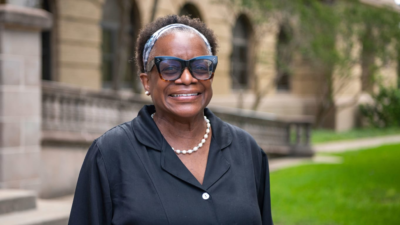 Right-wing Cancel Culture Has a Home at Texas A&M University. By Robert McCoy / The Daily Beast
Right-wing Cancel Culture Has a Home at Texas A&M University. By Robert McCoy / The Daily Beast
Newly released documents show how the university’s administrators repeatedly caved to pressure from politically powerful conservative influences.
This week, McElroy reached a $1 million settlement with her alma mater, as per a joint statement published along with hundreds of pages of documents collected for a report by the university’s general counsel. The messages included in the documents, along with those obtained by The Daily Beast via a Freedom of Information Act (FOIA) request, help shed light on how the situation at Texas A&M unraveled. Read more
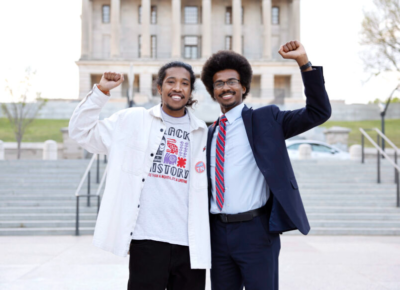 Tennessee Dems Expelled After Gun Protest Win Back Seats In Special Election. By Emine Yucel / TPM
Tennessee Dems Expelled After Gun Protest Win Back Seats In Special Election. By Emine Yucel / TPM
Reps. Justin Pearson of Memphis and Justin Jones of Nashville both comfortably reclaimed their legislative seats in the Tennessee House in a Thursday special election.
The landslide victories came almost three months after Pearson and Jones — two young, Black Democrats — were expelled by Tennessee Republicans for participating in a peaceful gun protest on the House floor. Read more
 What Black Women’s Equal Pay Day Can Teach Executives About Being Better Allies. By Kalina Bryant / Forbes
What Black Women’s Equal Pay Day Can Teach Executives About Being Better Allies. By Kalina Bryant / Forbes
Black Women’s Equal Pay Day is a significant date shedding light on the persistent gender and racial pay gap that increasingly impacts the lives of Black women in the workforce. This year it fell on July 27.
According to the National Partnerships for Women and Families, the wage gap for Black women compared to non-Hispanic white men is 67 cents for full-time, year-round workers and 64 cents for all workers (including part-time.) To make the same amount of money as the average white, non-Hispanic man, a Black woman would have to work into the new year to make the same amount. Read more
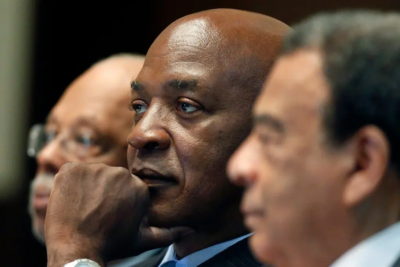 Charles J. Ogletree Jr., 70, Dies; at Harvard Law, a Voice for Equal Justice. By Clay Risen / NYT
Charles J. Ogletree Jr., 70, Dies; at Harvard Law, a Voice for Equal Justice. By Clay Risen / NYT
A mentor to the Obamas and many others, he was renowned for his work in both the classroom and the courtroom, taking cases on behalf of the famous and the indigent alike.
Charles J. Ogletree Jr., a Harvard law professor who helped reframe debates around criminal justice, school desegregation and reparations during the 1990s and 2000s, all the while mentoring a new generation of Black lawyers that included President Barack Obama and Michelle Obama, died on Friday at his home in Odenton, Md. He was 70. Read more
Ethics / Morality / Religion
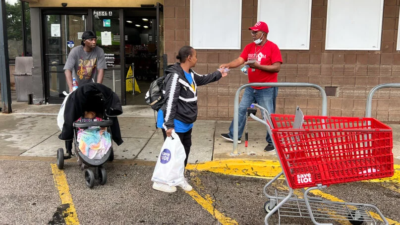 For some Black faith leaders, Ohio’s Issue 1 is bigger than abortion. By Kathryn Post / RNS
For some Black faith leaders, Ohio’s Issue 1 is bigger than abortion. By Kathryn Post / RNS
Elder Richard Daniel, right, of Greater Love Missionary Baptist Church, passes out voting literature while canvassing at a grocery store with Faith Community United in Cleveland, Aug. 7, 2023.
‘I think our faith community is waking up to the fact that there are various attacks on our voting rights and our ability to let our voices be heard,’ said Lesley Jones, a Cincinnati-based pastor and organizer. On Tuesday, Ohioans are voting in a special election on Issue 1, a ballot initiative aimed at fending off efforts to amend the state constitution to include a right to abortion. But Minor and other Ohio faith leaders say Issue 1 about more than abortion. It’s a matter of democracy, and of faith. Read more
 He was a church official who criticized Trump. He says Christianity is in crisis. By Scott Detrow, Gabriel J. Sánchez, and Sarah Handel / NPR
He was a church official who criticized Trump. He says Christianity is in crisis. By Scott Detrow, Gabriel J. Sánchez, and Sarah Handel / NPR
He criticized Donald Trump and the Southern Baptist Convention’s response to a sexual abuse crisis. Then he found himself on the outside.
On why he thinks Christianity is in crisis: It was the result of having multiple pastors tell me, essentially, the same story about quoting the Sermon on the Mount, parenthetically, in their preaching — “turn the other cheek” — [and] to have someone come up after to say, “Where did you get those liberal talking points?” And what was alarming to me is that in most of these scenarios, when the pastor would say, “I’m literally quoting Jesus Christ,” the response would not be, “I apologize.” The response would be, “Yes, but that doesn’t work anymore. That’s weak.” And when we get to the point where the teachings of Jesus himself are seen as subversive to us, then we’re in a crisis. Read more and listen here
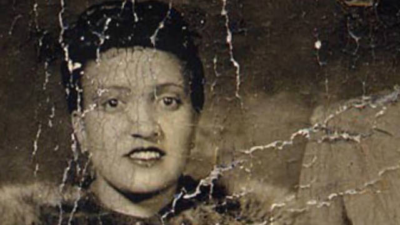 “It’s a Way of Reparations”: Why Henrietta Lacks Settlement Matters for Bioethics & Racial Justice. By Amy Goodman / Democracy Now
“It’s a Way of Reparations”: Why Henrietta Lacks Settlement Matters for Bioethics & Racial Justice. By Amy Goodman / Democracy Now
The family of Henrietta Lacks, a Black cancer patient whose cells were taken by Johns Hopkins University Hospital without her consent in 1951, has reached a deal over the unethical use of her cells with pharmaceutical company Thermo Fisher Scientific.
For more on the case and the history of medical racism in the United States, we speak with Dorothy Roberts, director of the University of Pennsylvania Program on Race, Science and Society. She is the author of several books, including Fatal Invention: How Science, Politics, and Big Business Re-create Race in the Twenty-first Century. “What happened to Henrietta Lacks didn’t just happen to her. It’s part of a long history of experimentation and exploitation of Black people in biomedical research,” says Roberts. Read more
 Why Christians need to support diversity professionals, not demonize them. By Michelle Loyd-Paige / RNS
Why Christians need to support diversity professionals, not demonize them. By Michelle Loyd-Paige / RNS
Even among Christians, DEI leaders find themselves isolated and unsupported.
In the past few months, a debate has broken out among economists, politicians and even faith leaders about the value of pursuing diversity in corporate America, with some commentators calling corporate diversity, equity and inclusion efforts “ungodly” or based on “unbiblical theology.” For nearly 39 years, I have taught about and advocated for diversity, equity, inclusion, anti-racism and social justice in Christian contexts. I have been sustained by the knowledge that diversity is a part of God’s good creation and is celebrated in the Bible. Read more
Historical / Cultural
 ’10 Million Names’ project aims to recover hidden history of enslaved African Americans. By Terri Martin and Allie Weintraub / ABC News
’10 Million Names’ project aims to recover hidden history of enslaved African Americans. By Terri Martin and Allie Weintraub / ABC News
The ultimate goal is to make a searchable database of the hidden history.
For centuries, access to the Black American story has been severely limited by the lack of genealogical records of enslaved African Americans and their descendants. Now, a team of dedicated researchers and genealogists is seeking to change that with “10 Million Names,” an ambitious new project aimed at recovering the names of approximately 10 million women, men and children of African descent who were enslaved in what became the United States. Those 10 million people have approximately 44 million living descendants, according to Kendra Field, Ph.D., the initiative’s chief historian. Read more
Related: Remains of 27 enslaved people genetically connected to 41,000 Americans. Amaris Encinas / USA Today
 A brief history of the Ku Klux Klan Acts: 1870s laws to protect Black voters, ignored for decades, now being used against Trump. By Joseph Patrick Kelly / The Conversation
A brief history of the Ku Klux Klan Acts: 1870s laws to protect Black voters, ignored for decades, now being used against Trump. By Joseph Patrick Kelly / The Conversation
The fourth charge against Trump – of conspiring against the rights of the voters to cast ballots and have them fairly and honestly counted – is more complicated, and it comes from a dark time in U.S. history.
As a historian who studies and writes about democracy and the American South, I believe the 1870s have something to teach us about the fourth count in the Jan. 6 case against Trump. When the Ku Klux Klan tried to steal the 1872 presidential election by killing and intimidating newly enfranchised Black men, federal troops swooped into South Carolina and arrested hundreds of Klansmen. The Department of Justice secured convictions in 140 cases by using the law that is being used to prosecute Trump. Read more
 Henry Cort stole his iron innovation from Black metallurgists in Jamaica. By Regina G. Barber, Carly Rubin , Berly McCoy, Rebecca Ramirez / NPR
Henry Cort stole his iron innovation from Black metallurgists in Jamaica. By Regina G. Barber, Carly Rubin , Berly McCoy, Rebecca Ramirez / NPR
The British Industrial Revolution is marked by economic and societal shifts toward manufacturing — away from largely agrarian life. Many technological advances powered this change.
One of the most significant innovations was called the Cort process, named after patent holder Henry Cort. The process takes low quality iron ore and transforms it from brittle, crumbly pieces into much stronger wrought iron bars. The transformation is cheap, allows for mass production and made Britain the leading iron exporter at the time. But after analyzing historical documents, Jenny Bulstrode, a historian at University College London (UCL), found that the process was not actually created by Cort. “It’s theft, in fact,” says Bulstrode. Read more
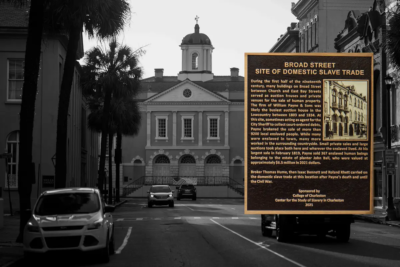 Activists Have Long Called for Charleston to Confront Its Racial History. Tourists Are Now Expecting It. By Jennifer Berry Hawes / Propublica
Activists Have Long Called for Charleston to Confront Its Racial History. Tourists Are Now Expecting It. By Jennifer Berry Hawes / Propublica
Surging interest from visitors is contributing to a more honest telling of the city’s role in the American slave trade. But tensions are flaring as South Carolina lawmakers restrict race-based teachings.
In his younger days as a carriage driver, Tony Youmans would strike a rapport with customers, nearly all of them white, as he prepared to show them around downtown Charleston, South Carolina. But if he mentioned slavery or pointed out enslaved people’s quarters, “a couple would cringe and roll their eyes, so you quickly went back to the moonlight and magnolias.” Today, he is part of a movement to tell a more complete story of the city. After 40 years in its booming tourism industry, he is seeing a huge shift in visitors’ reactions, from denialism to curiosity. Read more
 ‘12 years of hell’: Indian boarding school survivors share their stories. By Dana Hedgpeth / Wash Post
‘12 years of hell’: Indian boarding school survivors share their stories. By Dana Hedgpeth / Wash Post
Forced by the federal government to attend the schools, Native American children were sexually assaulted, beaten and emotionally abused
They were stripped of their clothes and scrubbed with lye soap. Matrons cut their long hair. Speaking their tribal language could lead to a beating. Taken from their homes on reservations, Native American children — some as young as 5 — were forced to attend Indian boarding schools as part of an effort by the federal government to wipe out their languages and culture and assimilate them into White society. Read more
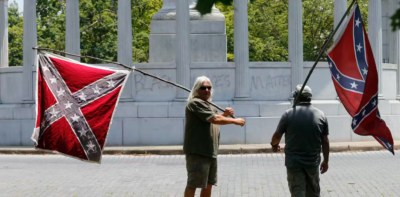 When Confederate-glorifying monuments went up in the South, voting in Black areas went down. By Alexander N. Taylor / The Conversation
When Confederate-glorifying monuments went up in the South, voting in Black areas went down. By Alexander N. Taylor / The Conversation
Research by economist Jhacova A. Williams has shown that Black Americans who live in areas that have a relatively higher number of streets named after prominent Confederate generals “are less likely to be employed, are more likely to be employed in low-status occupations, and have lower wages compared to Whites.”
In other words, as these monuments were erected, the vote increased for members of the then-racist Democratic Party, and people turned out to vote in lower numbers in predominantly Black areas. These findings demonstrate that a connection existed between racism and these monuments from their inception – and provide context for modern monument debates. Read more
 James McBride’s new book is his latest Great American Novel. By Laura Miller / Slate
James McBride’s new book is his latest Great American Novel. By Laura Miller / Slate
James McBride’s latest books don’t look like the usual contenders for the title. That’s precisely why they speak to our moment.
It is McBride’s two most recent novels, however, that strike me as especially, and sneakily, revolutionary. Both Deacon King Kong and The Heaven and Earth Grocery Store are about seemingly insignificant places: The Causeway housing project in Red Hook in the 1960s and the Chicken Hill neighborhood in Pottstown, Pennsylvania, in the 1930s, respectively. Read more
 The Root’s Essential James Baldwin 99th Birthday Reading List. By Angela Johnson / The Root
The Root’s Essential James Baldwin 99th Birthday Reading List. By Angela Johnson / The Root
In honor of the seminal, celebrated and misunderstood author, here’s some late summer must-reads.
Although he passed away in 1987, Baldwin left us with a brilliant body of work and has inspired future generations of amazing Black writers. In honor of what would have been his 99 birthday, check out our reading list inspired by the work of James Baldwin. Read more
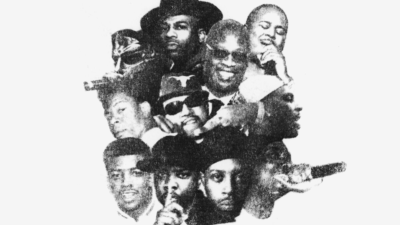 Remembering the Rappers We Lost. By Danyel Smith / NYT
Remembering the Rappers We Lost. By Danyel Smith / NYT
Biggie. Tupac. DMX. We pay tribute to 63 stars who died too young.
So I made a spreadsheet of people in hip-hop who died before their time. Almost all of them are Black men. With hesitation, I stopped at 63. Stare at the spreadsheet long enough, and names push limblike through Excel’s cells. The stacks of narrow boxes are like coffins in a queue. No list could include all who are gone. Already I’m guilty about the absence of neighborhood superstars and the critically unacclaimed. I also have not listed the men in rap who walk among us but who are dead inside. Read more
Related: The Future of Rap Is Female. By Niela Orr / NYT
Related: How the Shakurs Became One of America’s Most Influential Families. By Keisha N. Blain / TNR
Sports
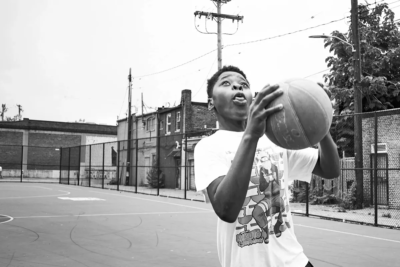 “We Used to Win Here”: A Salon film. By Alexandra Clinton and D. Watkins / Salon
“We Used to Win Here”: A Salon film. By Alexandra Clinton and D. Watkins / Salon
Youth sports participation is declining in America. This short documentary set in Baltimore examines the growing divide in youth sports access and opportunity
The number of high schoolers playing a team sport has dropped to its lowest level in history and there are fewer sports programs available to younger children than ever before. At the same time, hyper-elite programs like AAU basketball, which attract the best players from around the country, are thriving thanks to big boosts from corporate brands like Nike, Under Armour and Adidas. In a documentary short film titled, “We Used to Win Here,” set in Baltimore, Salon examines how the growing divide in youth sports access and opportunity is affecting this city. Something as simple as playing on a recreational basketball team in a child’s neighborhood offers exposure to athletics, community, mentorship and lifelong lessons in competition, showing up and teamwork. Read more and watch here
 World Cup 2023: Why conservatives hate the U.S. Women’s National Soccer Team. By Luke Winkie / Slate
World Cup 2023: Why conservatives hate the U.S. Women’s National Soccer Team. By Luke Winkie / Slate
The far right has always been weird about soccer, but the U.S. Women’s National Team really gets their forehead vein popping.
Rooting against your country’s national team—as in, for Americans, against a group of athletes wreathed in the Star-Spangled Banner, hoping to consecrate their homeland with glory—should be a historically flagrant faux pas. I can honestly think of no greater sin in sports fandom; it’s some real traitorous behavior, high-key Benedict Arnold shit. Read more
Related: Trump Cheers the Defeat of Rapinoe and the U.S. Women’s Soccer Team. By Maggie Astor / NYT
 Simone Biles wins her first competitive gymnastics event since 2021, qualifies for US national championships. By , and
Simone Biles wins her first competitive gymnastics event since 2021, qualifies for US national championships. By , and
Maybe you forget, but the University of Southern California’s Reggie Bush and his 360-degree hips earned the Heisman Trophy in 2005 with one of the jaw-dropping-est seasons in college football history. He did things that wore out the 30-second replay button on my remote.
But Bush lost that Heisman — and USC had to give up its 2004 national title and 14 wins from 2004 and 2005 — after news emerged that his family had accepted gifts, including his parents living rent-free in a San Diego-area house, from a couple of sketchy wannabe sports marketers. Read more
Baseball hasn’t gone the way of the eight-track tape, but it is rarely the first choice of the best Black athletes the way it was three decades ago, when Black players made up nearly one-fifth of MLB rosters. This season, Black players from the United States constituted just 6.2 percent of Opening Day rosters, according to the Institute for Diversity and Ethics in Sport. That was a full percentage point drop from last season and the lowest rate since the institute began tracking participation in 1991. Read more
Site Information
Articles appearing in the Digest are archived on our home page. And at the top of this page register your email to receive notification of new editions of Race Inquiry Digest.
Click here for earlier Digests. The site is searchable by name or topic. See “search” at the top of this page.
About Race Inquiry and Race Inquiry Digest. The Digest is published on Mondays and Thursdays.
Use the customized buttons below to share the Digest in an email, or post to your Facebook, Linkedin or Twitter accounts.
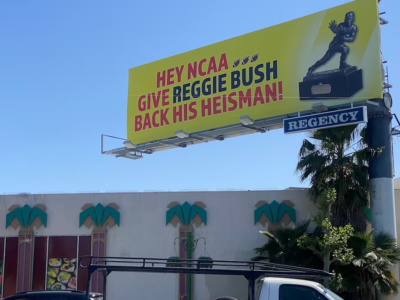 his (ex-)Heisman winner was punished for something that is essential today. By Rick Reilly / Wash Post
his (ex-)Heisman winner was punished for something that is essential today. By Rick Reilly / Wash Post Bigger than myself’: Young Black ballplayers feel a sense of mission. By Michael Lee / Wash Post
Bigger than myself’: Young Black ballplayers feel a sense of mission. By Michael Lee / Wash Post Coco Gauff wins the DC Open for the biggest title of her young career. By Ava Wallace / Wash Post
Coco Gauff wins the DC Open for the biggest title of her young career. By Ava Wallace / Wash Post